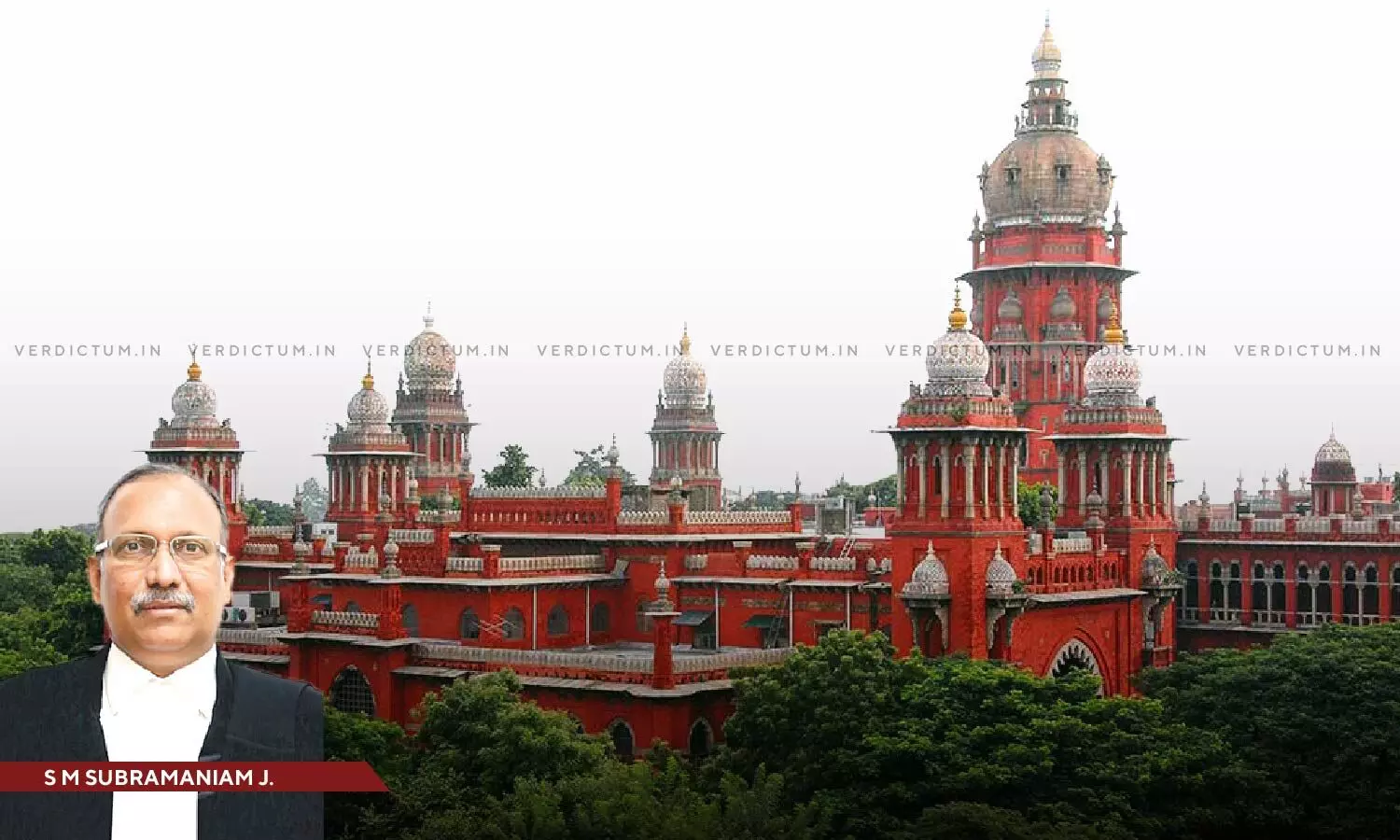
Love & Affection Implied Condition For Senior Citizens' Property Transfers, Violation Of Which Will Result In Cancellation Of Gift Deed: Madras High Court
 |
|The Madras High Court has held that "Love and Affection" is considered an implied condition when senior citizens transfer their property, and a violation of this condition can invoke Section 23(1) of the Act to cancel Gift or Settlement Deeds. The writ petition sought to obtain the records related to a Settlement Deed and an order confirming the cancellation of that deed.
A Bench of Justice S.M. Subramaniam held that “Love and Affection” is an implied condition in the context of Section 23(1) of the Act, and therefore, there need not be any express condition in the Settlement Deed for the purpose of maintaining the senior citizen. Refusal of maintenance after executing the Settlement Deed or Gift Deed, is the ground for invoking the deemed ground of fraud or coercion or undue influence.”
The case involved the fourth respondent, who is the mother of the writ petitioner, alleging that the petitioner failed to maintain her and her husband, despite a Settlement Deed executed in his favor. The petitioner, in response, claimed that he is providing for his parents and that there were no conditions attached to the Settlement Deed.
The second respondent had conducted an inquiry based on the fourth respondent's complaint and subsequently canceled the Settlement Deed, citing the petitioner's failure to support his parents. The petitioner's appeal was rejected because it did not fall under the appeal provisions of the Maintenance and Welfare of Parents and Senior Citizens Act, 2007.
Advocate K. Sudhakar appeared for Petitioner, Advocate T. Venkatesh Kumar appeared for Respondents 1-3 and Advocate N.Manokaran appeared for Respondent 4.
The issue before the Court revolved around the maintenance of the parents by the writ petitioner, as stipulated in the Settlement Deed, and whether the cancellation of the deed was justified based on their needs and the provisions of the Act.
The High Court discussed various Supreme Court and High Court decisions on Senior Citizens Act. The Court said that the Act's purpose is unambiguous: it obligates children or relatives to provide for senior citizens' needs so they can lead a normal life.
The High Court provided a clear interpretation of the Maintenance and Welfare of Parents and Senior Citizens Act, 2007. The Court said that the Act emphasized the obligation of children or relatives to ensure that senior citizens can lead a "normal life," which includes security and dignity, as per Rule 20(2)(i) of the Maintenance of Senior Citizen Rules. This definition encompasses medical care, food, shelter, and other essential needs in line with Article 21 of the Indian Constitution.
The Court added, “Therefore, the children defending their case merely on the ground that they are willing to provide food and shelter, cannot be taken as a ground for the purpose of sustaining the Settlement Deed executed by the senior citizen. The requirement of the provisions are to be complied in its real spirit and in the event of an iota of doubt, the Authority Competent is empowered to cancel the Settlement Deed or Gift Deed, as the case may be, in order to protect the normal life of senior citizen”
The Court emphasized that merely providing food and shelter is insufficient to fulfill the Act's requirements. "Love and Affection" is considered an implied condition when senior citizens transfer their property, and a violation of this condition can invoke Section 23(1) of the Act to cancel Gift or Settlement Deeds.
The Court highlighted that the Act's primary focus is on human conduct toward senior citizens, aiming to protect their security and dignity. The judgment also clarified that Section 23(1) does not require an express condition in the deeds but should be holistically understood in the context of "Love and Affection" implied by the senior citizen.
In summary, the Court affirmed that the Act's purpose is to protect the dignity and security of senior citizens by ensuring their needs are met. The Court upheld the cancellation of a Settlement Deed when the petitioner failed to maintain his parents, in line with the Act's provisions. The Court dismissed the writ petition and the connected miscellaneous petition, with no costs imposed.
Cause Title: Mohamed Dayan v. The District Collector & Ors., [2023:MHC:4051]
Click here to read/download Order